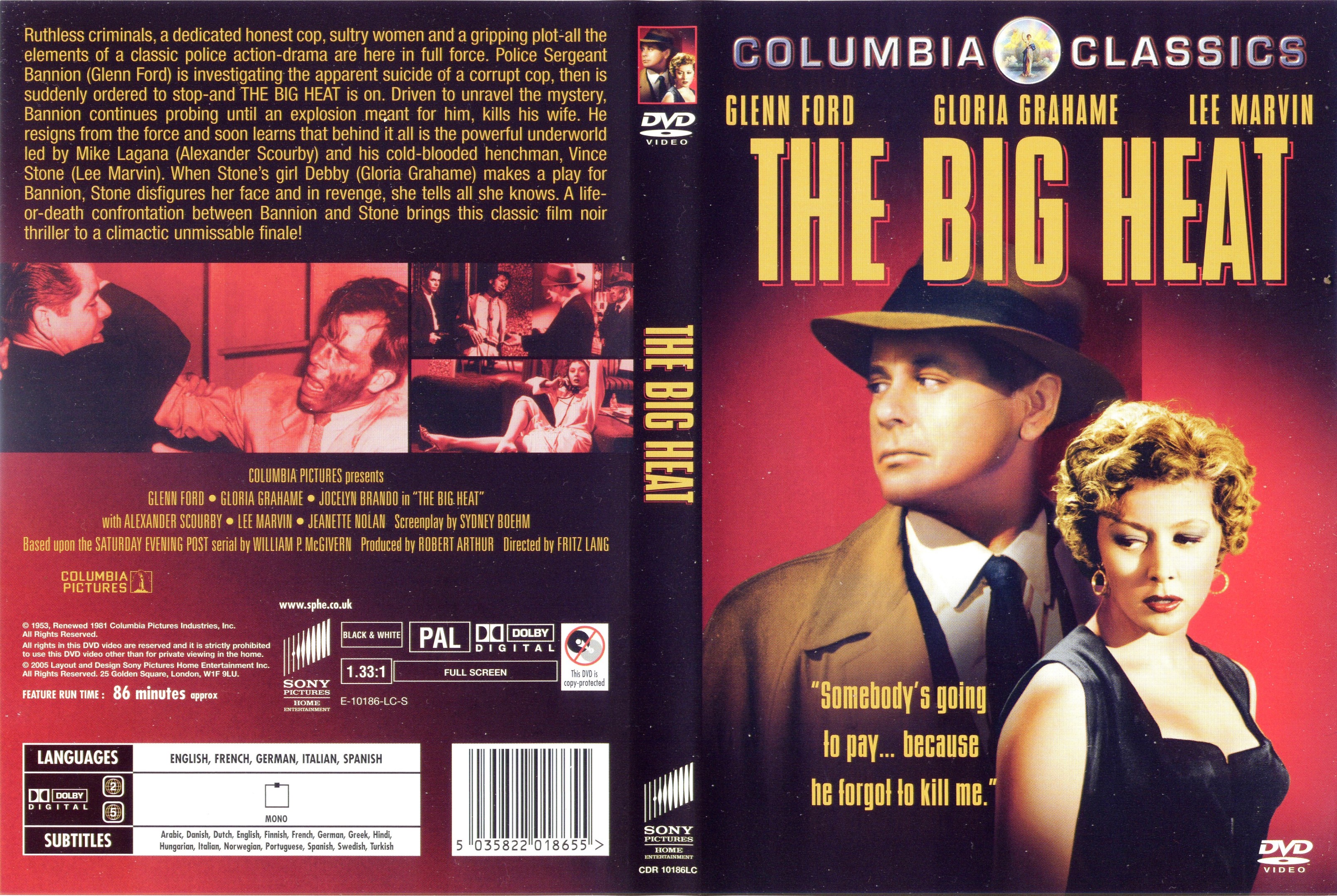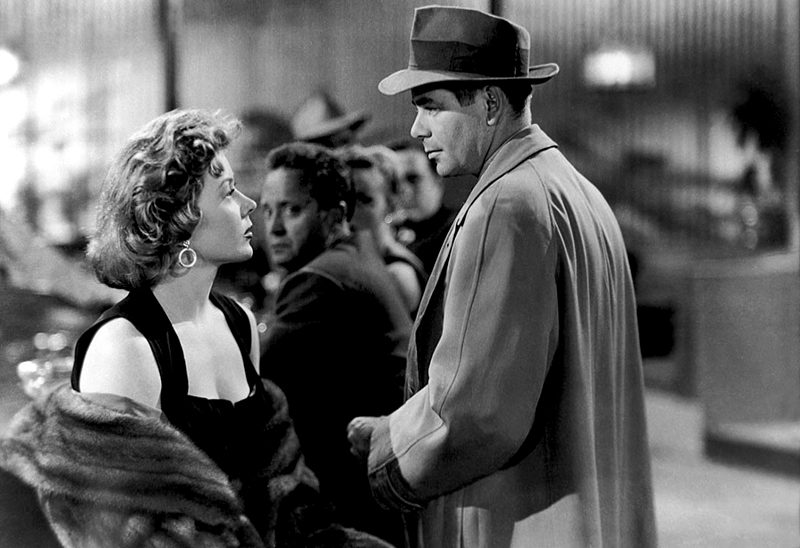← Back to Reviews
in
The Big Heat
The story is slightly predictable and can't stand a lot of scrutiny but taut direction and a solid cast help 1953's The Big Heat remain a credible crime melodrama after all these years.

The film stars Glenn Ford as a police detective named Dave Bannion who is assigned the case when a fellow police officer commits suicide. Evidence comes to Bannion suggesting that the officer's death might not be a suicide, which results in two murders that find Bannion's life spiraling into an all-out war against the mob where Bannion finds he is unable to trust anyone, except the not-as-dumb-as-she looks mistress of the mob boss' number two guy.

It's the directorial eye of the legendary Fritz Lang (M) that provides this film with the extra sizzle that overcomes the predictability of the story and some minor plotholes. The idea of cops on the take was pretty daring stuff in 1953 and it is pretty easy to conclude that the guy who kills himself at the beginning of the film was dirty, documented by his wife's icy reaction to what he has done and her immediate stashing of the evidence her husband had that apparently could bring down the whole syndicate. With all this incriminating evidence this cop had, I wasn't sure why he felt suicide was his only option, but I knew things weren't as they appeared when Bannion makes his first call on the "grieving" widow and it is made clear, through Lang's direction, that the woman is hardly grieving.

Lang and screenwriter Sydney Boehm make some bold storytelling choices here. I must admit being surprised after watching the story establish Bannion as a loving husband and devoted dad that the story would sacrifice his wife. In more contemporary mob oriented films, wives and children are usually off limits and I really didn't see this coming, a gutsy story element that pushed the story into first gear.

Ford is a square-jawed hero and Gloria Grahame once again lights up the screen as the mob mistress who, in a horrifying scene, actually gets a boiling hot pot of coffee thrown in her face. Lee Marvin is properly menacing as Grahame's coffee-throwing boyfriend and there's a rich supporting turn from Jeanette Nolan as the cop's widow that definitely merits attention. This one holds up pretty well with special appeal for fans of Grahame and Marvin.
The story is slightly predictable and can't stand a lot of scrutiny but taut direction and a solid cast help 1953's The Big Heat remain a credible crime melodrama after all these years.

The film stars Glenn Ford as a police detective named Dave Bannion who is assigned the case when a fellow police officer commits suicide. Evidence comes to Bannion suggesting that the officer's death might not be a suicide, which results in two murders that find Bannion's life spiraling into an all-out war against the mob where Bannion finds he is unable to trust anyone, except the not-as-dumb-as-she looks mistress of the mob boss' number two guy.

It's the directorial eye of the legendary Fritz Lang (M) that provides this film with the extra sizzle that overcomes the predictability of the story and some minor plotholes. The idea of cops on the take was pretty daring stuff in 1953 and it is pretty easy to conclude that the guy who kills himself at the beginning of the film was dirty, documented by his wife's icy reaction to what he has done and her immediate stashing of the evidence her husband had that apparently could bring down the whole syndicate. With all this incriminating evidence this cop had, I wasn't sure why he felt suicide was his only option, but I knew things weren't as they appeared when Bannion makes his first call on the "grieving" widow and it is made clear, through Lang's direction, that the woman is hardly grieving.

Lang and screenwriter Sydney Boehm make some bold storytelling choices here. I must admit being surprised after watching the story establish Bannion as a loving husband and devoted dad that the story would sacrifice his wife. In more contemporary mob oriented films, wives and children are usually off limits and I really didn't see this coming, a gutsy story element that pushed the story into first gear.

Ford is a square-jawed hero and Gloria Grahame once again lights up the screen as the mob mistress who, in a horrifying scene, actually gets a boiling hot pot of coffee thrown in her face. Lee Marvin is properly menacing as Grahame's coffee-throwing boyfriend and there's a rich supporting turn from Jeanette Nolan as the cop's widow that definitely merits attention. This one holds up pretty well with special appeal for fans of Grahame and Marvin.
